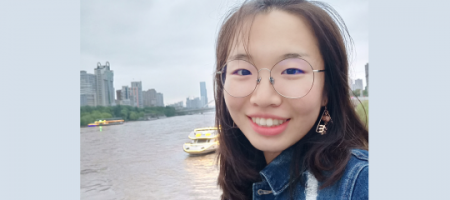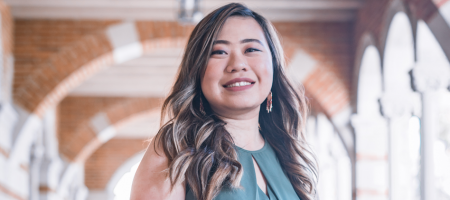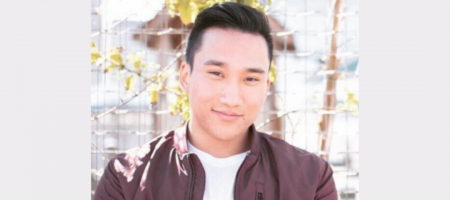Student Spotlight – Teresa Xu
Meet third-year undergraduate researcher Teresa Xu!
Teresa majors in Art History and minors in Anthropology and Digital Humanities and is in our Undergraduate Research Fellows Program (URFP). The title of her project is “Intercultural Museum Display: an Investigation on Tangibility.” She hopes that her project can bring a new way of seeing intercultural exhibitions or help museums to deal with the problematic magic of tactility. Her best piece of advice is to enjoy the learning experience and find the stance you want to take.
How did you first get interested in your research project?
I took an Art History class called “Art and Empire” which examined the creation of art through the lens of imperialism. There was a museum accident at the Franklin Museum in which a man accidentally snapped off a thumb of a 2000-year-old terracotta warrior on loan from China, and I connected this incident with the remaining effects of postcolonialism and became interested in museum exhibitions, especially the contextualization of intercultural ones.
What has been the most exciting aspect of your research so far?
My focus has primarily been on current art historical scholarship: books, magazines, and other scholars’ research. I have a rudimentary idea about how we can use replicas to better design intercultural exhibitions. I will design a short questionnaire and collect answers from the public to learn how people’s opinions about using replicas in museums change before and after understanding their cultural context. The questionnaire will be conducted in both Chinese and English to see how different cultural communities will perceive the replicas differently.
What has surprised you about your research or the research process?
Even though I was not able to visit the museums I planned to use as case studies in person, the pandemic has allowed me to see so many more digital exhibitions and see other directions future museums can take. Exhibitions and art media will no longer be restricted by the limit of physical spaces. We can expect new forms of representation that may transcend time and space in the near future.
What is one piece of advice you have for other UCLA students thinking about doing research?
Don’t feel rushed or obligated to have research experience just because other people are doing it. Enjoy the learning experience and find the stance you want to take. It doesn’t have to be something that has never been done before. Start with what you like.
What effect do you hope your research has in your field, at UCLA, in your community, or in the world?
I hope my research can bring about a new way of seeing intercultural exhibitions and/or help museums deal with the problematic magic of tactility. Sometimes people just want to touch the marble sculpture, become closer to the cave painting, sit on the fragile wooden chair that is over 200 years old just because of the beauty of these objects. But museums visits are not only about sightseeing. We need museums to not only provide the artifacts, but also the stories behind them so that visitors can find their own relevance. Otherwise, what museums are displaying are just lifeless gravestones of what has already been killed by history and ourselves.




